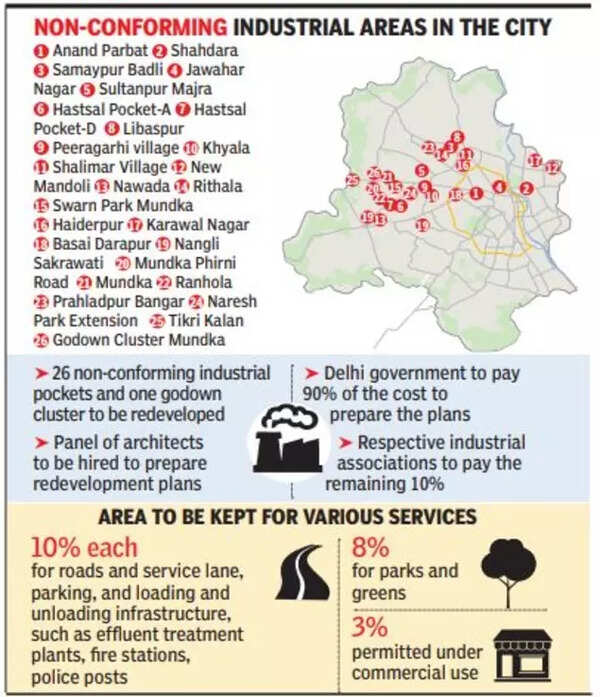[ad_1]
According to officials, the Delhi State Industrial and Infrastructure Development Corporation (DSIIDC) issued a request for proposal to shortlist five DDA-empaneled architect consultants. The consultants will be allotted the non-conforming industrial clusters for preparation of the redevelopment plans in accordance with the Delhi Master Plan.

While the Delhi government will bear 90% of the cost of the preparation of the layout and the redevelopment plan, the respective industrial area associations will cough up the remaining 10%.
Hanging fire for a long time because of lack of consensus on who will prepare the layout plan – the industrial associations or the industries department – the Delhi government broke the deadlock in June and agreed to bear the cost.
According to officials, the redevelopment work will take place in three phases. While drafting of the redevelopment plans for each industrial pocket highlighting the “need for compromise and collaboration” will be carried out in the first phase, phase two will focus on developing basic facilities, including roads, sewer lines, water lines and electricity.
The third phase will involve the construction of common facilities, such as community halls, training centres and research centres, the government said in a statement.
A cluster with four hectares of contiguous land area and having more than 70% of total units as industrial is notified as non-conforming industrial area. The 26 notified areas include one godown cluster too, said an official. The redevelopment of these pockets will benefit nearly 51,000 industrial units, ensure direct and indirect jobs to nearly 15 lakh people and will give a substantial boost to the city’s economy.
The Delhi government, in its Rozgar budget for financial year 2022-23, had announced redevelopment of non-conforming industrial clusters as one of the key focus areas.
According to officials, all non-conforming industrial clusters in the capital lack facilities and organised layout, making them improper for efficient industrial activities. They added that the redevelopment process would involve preparation of redevelopment plans for widening of roads, laying of services, development of open space and parking among other amenities. Officials said nearly 40 per cent of the total area of each industrial pocket will have to be kept for common facilities.
[ad_2]
Source link





Join The Discussion